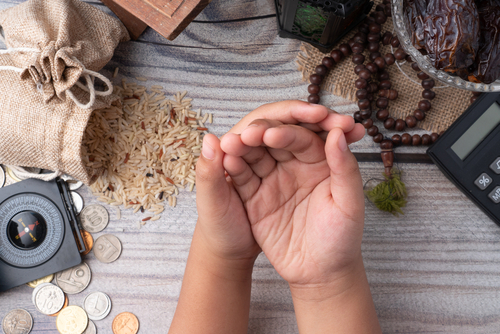Sharing with fellow brothers and sisters should be done by Muslims. By doing Waqf, the benefits are not only felt by the one giving but also by the beneficiary of the Waqf. And the Waqf is one of the three practices (amalan) that are not interrupted when people die.
Everyone certainly has their way of planning for their future. Thus, they can live more calmly in old age. One of them is through investment. At this time, the invitation to invest is indeed increasingly being resonated. However, as Muslims, it is good not only to prepare for investment during life. Likewise, a faithful servant of God must also prepare for the investment of the hereafter. One of them is through Waqf.
What is the definition and wisdom of Waqf?
What Is Waqf?
The term “Waqf” should be pretty familiar. Drawn from its definition, Waqf has the meaning of activity of holding property of a particular value used for interests allowed by religion. Unlike almsgiving and other practices, the value of the goods represented will not decrease. The goods that are described can also generally provide uninterrupted benefits for the surrounding community. Not surprisingly, Waqf is one of the three types of practices that are uninterrupted even when the person dies. The types of waqf property are divided into two: Waqf consists of movable and immovable objects. An example of an immovable waqf fortune is the land or building of a mosque.
Meanwhile, movable property includes securities, gold, money, etc. What needs to be noted, the Waqf must have a long-term benefit value.
Waqf Wisdom
Just like other practices of worship in Islam, Waqf also has virtues. The virtues or wisdom of Waqf include:
Honing the Social Practices
One of the most felt waqf wisdom is the increase in social enthusiasm. By doing Waqf, a person will make an instrumental contribution to the surrounding community, especially if God entrusts you with very abundant fortunes. With a large number of people who need help, you can make Waqf a means to make the soul more sensitive to the suffering of others.

Cleaning the Fortunes
The wisdom of giving another waqf is to clean up the treasures. In this case, the property received is definitely different from our absolute right. The fortune is basically an entrustment from God Almighty. And, in it, are the rights of others. With a waqf, it is identical for a person to share their fortune with people in need. Thus, the treasures owned today become more blessings and bring peace.
Become an everlasting Practice
Waqf practice is one of the three practices that will not get interrupted when the person passes away. This is because the waqf assets will continue to benefit the surrounding community even when the people giving Waqf have died. It is safe to say that Waqf is a form of investment in the afterlife later.
Helping To Overcome Social Inequalities
The rich will get richer, with the poor will get poorer. That is the social inequality that unfortunately still exists today. However, one can slightly reduce the gap through waqf practice. People who can afford property can provide facilities that can be used for free by those in need. Thus, people below the poverty line can also get better living facilities.
Learning that possessions are not permanent
Human beings born in the world bring nothing; of course, when they die, they don’t bring anything. But during life, humans will experience various events in life, one of which is the ownership of property. With the fortunes or treasure given by God, we can get the lesson and wisdom that those belong to Allah, and with Waqf, make the learning that everything we have in this world is only temporary and impermanent.
Those are some of the pearls of wisdom of Waqf that should be considered. For those interested in representing their property or objects, you can distribute them through Dompet Dhuafa. Currently, Dompet Dhuafa already provides online waqf services. This service allows donors to distribute the assets they want to represent anytime and anywhere.




